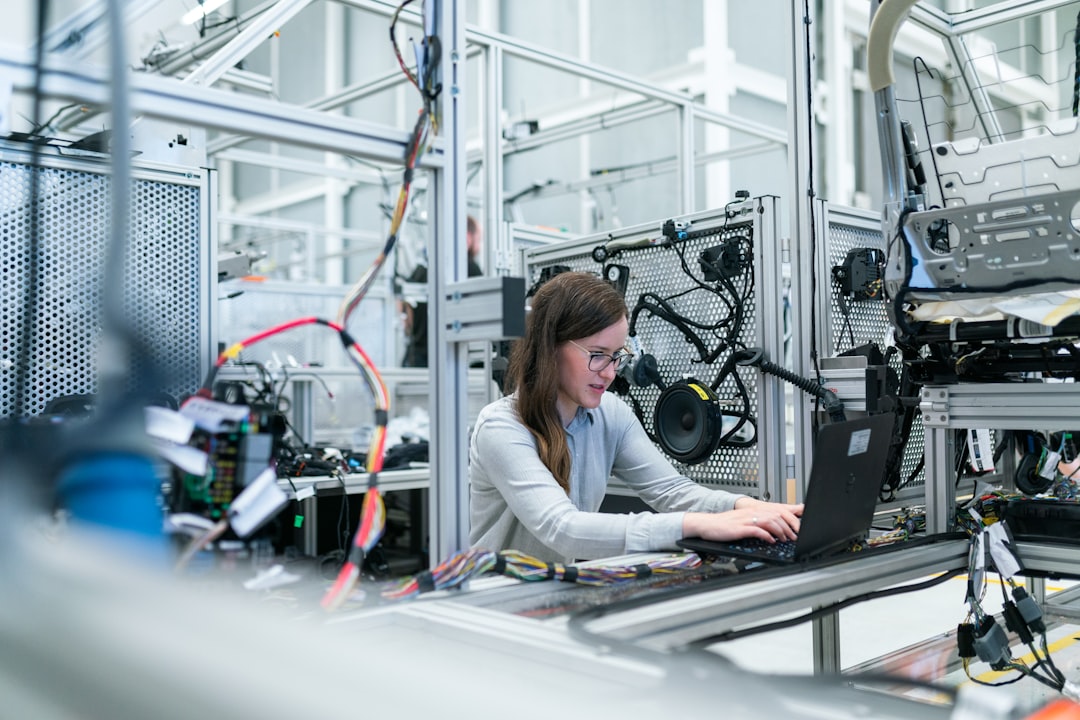
Unlocking the Future: Top Technology Trends Shaping Tomorrow’s Innovations
In a world driven by rapid advancements, technology trends are at the forefront of transforming industries, enhancing daily lives, and unlocking new possibilities. As we look to the future, several key technology trends are emerging that promise to reshape our innovations and how we interact with technology. This article delves into these trends, providing insights and practical applications that highlight their significance.
# Artificial Intelligence (AI) and Machine Learning
Artificial Intelligence and Machine Learning are no longer just buzzwords; they are integral components of modern technology. AI is revolutionizing sectors such as healthcare, finance, and transportation. For instance, AI algorithms analyze vast datasets to predict patient outcomes, enabling healthcare professionals to make informed decisions. Machine learning, a subset of AI, allows systems to improve their performance over time without explicit programming.
# Case Study: AI in Healthcare
A prime example of AI’s impact can be seen in the development of predictive analytics tools that assess patient data. These tools can identify potential health risks and recommend preventive measures, ultimately improving patient outcomes and reducing healthcare costs.
# Internet of Things (IoT)
The Internet of Things is connecting devices and systems like never before. From smart homes to industrial automation, IoT is enabling seamless communication between devices, resulting in increased efficiency and convenience.
# Practical Applications of IoT
Imagine a smart home where your thermostat adjusts automatically based on your preferences or a factory where machinery communicates in real-time to optimize production. IoT is making these scenarios a reality. Companies like Nest and Philips Hue are pioneering smart home technologies that enhance user experience while promoting energy efficiency.
# Cybersecurity Innovations
As technology evolves, so do the threats associated with it. Cybersecurity remains a critical concern for businesses and individuals alike. Innovations in this field are essential to protect sensitive data and maintain trust in digital systems.
# Emerging Trends in Cybersecurity
The rise of AI-driven security solutions is a notable trend. These systems can detect anomalies in network traffic and respond to threats in real-time. Furthermore, the adoption of zero-trust security models, where trust is never assumed, is becoming a standard approach for organizations aiming to safeguard their networks.
# Augmented Reality (AR) and Virtual Reality (VR)
AR and VR technologies are transforming experiences across various domains including gaming, education, and training. These immersive technologies provide users with interactive environments that enhance learning and engagement.
# Example: VR in Education
In education, VR is being utilized to create virtual classrooms where students can explore historical sites or conduct scientific experiments safely. This hands-on approach fosters a deeper understanding of complex subjects, making learning more engaging.
# Blockchain Technology
Blockchain is often associated with cryptocurrencies, but its potential extends far beyond digital currency. This decentralized ledger technology is poised to revolutionize industries by enhancing transparency and security.
# Real-World Applications of Blockchain
In supply chain management, blockchain can track products from origin to consumer, ensuring authenticity and reducing fraud. Companies like IBM are leveraging blockchain to create more efficient and transparent supply chains, thus fostering trust among stakeholders.
# 5G Technology
The rollout of 5G networks is set to unlock unprecedented speeds and connectivity. With lower latency and higher bandwidth, 5G will enable the proliferation of IoT devices and enhance user experiences in mobile applications.
# Impact on Industries
Industries such as telemedicine, autonomous vehicles, and smart cities will benefit significantly from 5G technology. For example, telemedicine can deliver high-quality video consultations, while autonomous vehicles will rely on real-time data exchange to navigate safely.
# Quantum Computing
Quantum computing is an emerging field that promises to solve complex problems at unprecedented speeds. While still in its infancy, the implications of quantum computing are vast, from drug discovery to optimization problems in logistics.
# Future Potential of Quantum Computing
Tech giants like Google and IBM are investing heavily in quantum computing research, aiming to unlock capabilities that are currently beyond the reach of classical computers. This innovation could lead to breakthroughs in various fields, reshaping industries as we know them.
Conclusion
The technology trends shaping tomorrow’s innovations are diverse and dynamic. From AI and IoT to cybersecurity and quantum computing, these advancements are not only enhancing efficiency and convenience but also addressing complex challenges across various sectors. As we embrace these trends, it is crucial to remain informed and adaptable, ensuring that we harness the full potential of technology to create a better future.
For those interested in diving deeper into these topics, consider exploring resources like online courses on AI, articles on IoT applications, or documentation on blockchain technologies. Keeping abreast of these innovations will empower you to navigate the ever-evolving landscape of technology.
Whether you’re a technology enthusiast, a professional seeking to enhance your skills, or simply curious about the future, staying informed about these trends will help you unlock new opportunities. Embrace the future and explore the possibilities that lie ahead!


